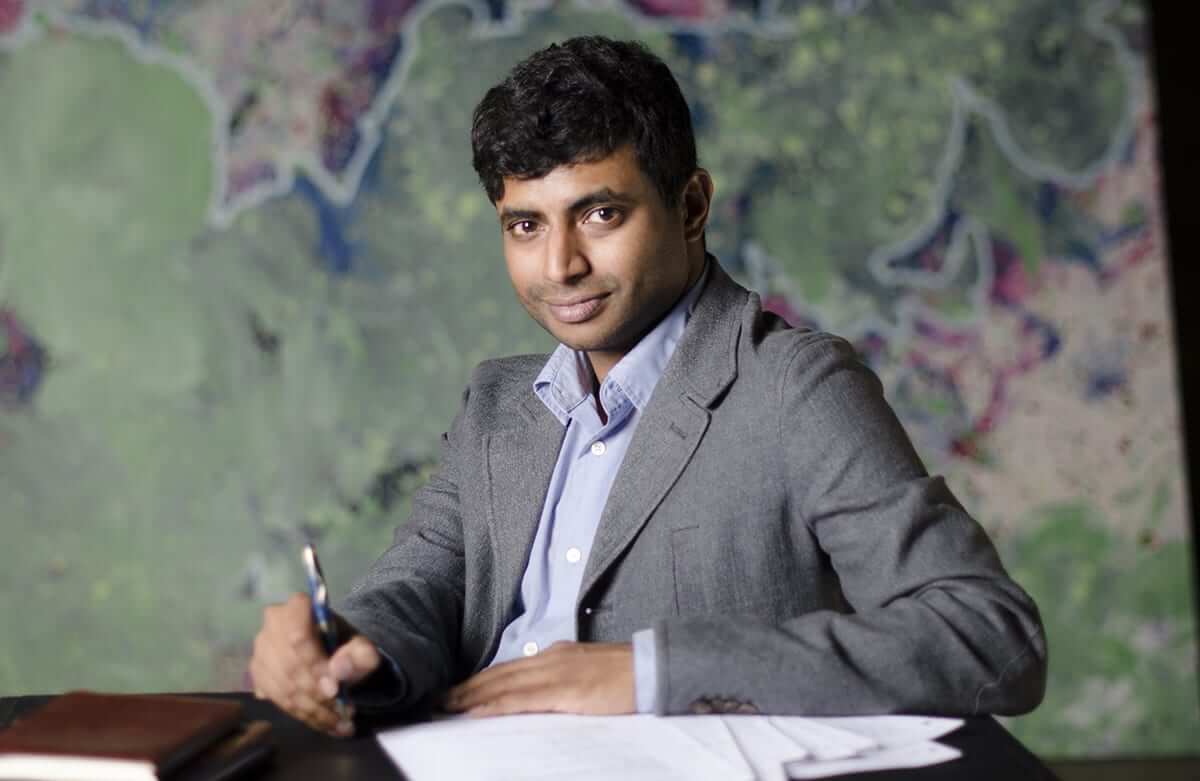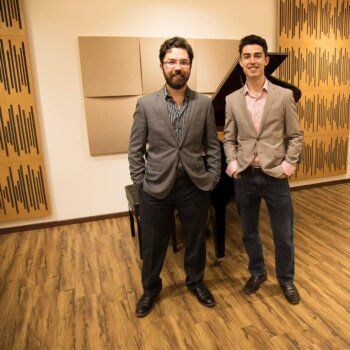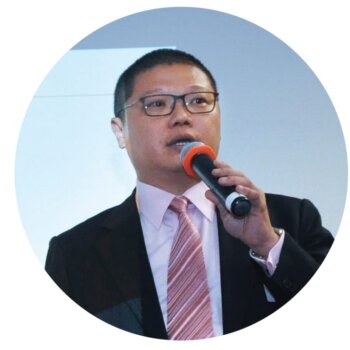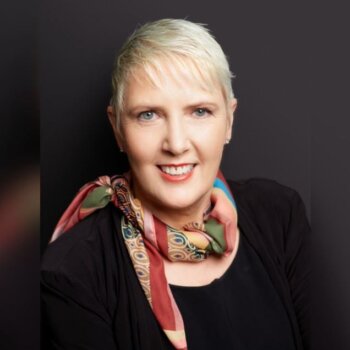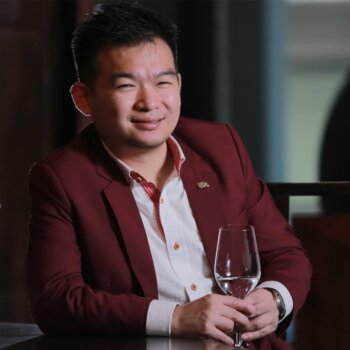Nived Ravikumar was born and raised in Southern California to immigrant parents from Chennai, India. Growing up, he developed a fascination with two of the region’s most distinguishing features: diversity and moviemaking. He has since blossomed into a world traveler (30+ countries visited) and expert storyteller. After working in the entertainment industry and at Google’s L.A. offices for several years, he launched Statement Guru as a “storytelling” service to a domestic and global clientele looking for help on their admissions essays. Nived is a lifetime member of American MENSA and currently completing his coursework as a Master’s degree candidate at Harvard University.
In your own words what is Statement Guru?
Statement Guru’s tagline is “My mission is your admission.” To that end, Statement Guru is in the business of getting clients into their dream programs by guiding them through the admissions essay writing process, from brainstorming to final polish and everything in between.
While GPA, standardized testing and extracurricular experiences are all important, as admissions become even more competitive at elite institutions, it’s no longer enough to be smart or even accomplished. You need to have a story to tell; you need to grab admissions officers in a bold and vibrant way. No part of the application can do this like the statement of purpose (or personal statement). Despite this all-important component, there is a significant lack of understanding out there as to how to actually execute a high-quality admissions essay.
How did you come up with the idea of Statement Guru?
I didn’t. People decided for me! Let me explain. In my social circles, I had developed a reputation for being a strong writer, and I pursued career opportunities that allowed that skill to shine. For example, I was the Newsletter Editor for the Indian Film Festival of Los Angeles for several years. Several of my colleagues and friends took notice of my abilities and approached me to help them revise their graduate school admissions essays. In fact, I got some free dinners and extra income out of it. Without direct experience in admissions, I relied on what I’d learned from screenwriting classes and storytelling theory. The acceptance success rate for those early clients was amazingly high, and my methods validated themselves.
Could you walk us through the process of starting up Statement Guru?
Working with people I already knew in the Los Angeles area was one thing. Standardizing and tailoring my methods to a large audience was another. I needed a catchy name and, to my surprise, StatementGuru.com was available. It was short, memorable, and being of South Asian descent, the “guru” part resonated with me. From there, the process was about challenging myself in unfamiliar situations. For example, one of my early clients was a friend of a friend living in the Bay Area whom I had never met. To this day, I still haven’t met her! All of our interactions were over the phone, and at times, it was a bit awkward trying to pry interesting biographical tidbits out of a total stranger. Nowadays, these type of conversations are second nature to me, and my clients can sense that and feel at ease. I would say my first India-based client was another hurdle. I stumbled my way through it, and he’s in a master’s program at NYU now. So I guess I did something right!
Did you encounter any particular difficulties during startup?
I was so confident in my talent as an essay guru. I worked hard on building an eye-catching website and creating online advertising campaigns. For a couple of years, all that effort was met with a resounding silence. In hindsight, it makes sense—I wasn’t selling a product or tangible good, I was selling a promise, over the internet no less, that I could help someone I had never met, from some part of the globe I had probably never visited, write a compelling personal narrative. If you’re in a business like this, word-of-mouth and third-party referrals are everything. But where do you get those when no one is willing to hire you in the first place? It’s a catch-22. I had to do a lot of free and heavily discounted work in those days and wait for glowing Yelp reviews to trickle in. I would say critical mass was reached around two years ago. Since then, the focus has been less on gaining credentials and more about servicing clients and evolving as an organization.
How have you been developing Statement Guru since startup?
This is a tricky one because so much of what Statement Guru is revolves around my way of interacting with clients and putting an essay together. The personal touch is what makes Statement Guru Statement Guru, but it is also impossible for me to work one-on-one with everyone out there who wants to work with me. Sometimes, I don’t have the time, sometimes, they can’t afford my quote. Long term, I want to indoctrinate additional tutors in “the Statement Guru way,” but for now, I am more focused on creating content that allows me to reach as many people as possible for as minimal a cost as possible. I have written an admissions essay book 50 Questions for Your Admissions Essay Draft (available on Amazon), I host the admissions-focused Statement Guru podcast (statementguru.podomatic.com) and I post articles on my site and sometimes on my colleagues’ sites.
What kind of feedback did you get for Statement Guru so far?
I never would have imagined that a seemingly simple thing like an admissions essay would actually be a complex, at times emotional process. It is essentially a mission statement for an individual. As many entrepreneurs can tell you, creating and refining a mission statement requires a lot of soul-searching and reflection. If working on your admissions essay does not create similar sensations in you, you’re doing it wrong. I’ve had many clients tell me they’ve found the process therapeutic, and it has helped them gain greater self-awareness and direction in life. I don’t want to take too much credit, as there are numerous ways they could have “found themselves.” But I’m happy to help, and it’s that kind of thing that makes what I do truly rewarding.
What is your strategy against your competition?
I work in a funny industry, so take all of this with a grain of salt. If you look at a university like UCLA, it receives nearly 100,000 applicants for its freshman class. 100,000! Per year! I’m willing to guess a majority of those applicants used some kind of professional service or resource to help them with their SATs. But what percentage hired an essay professional for their personal statements? Much, much lower. While I’ve met a few other essay professionals, some of whom are direct competitors technically, we are barely scratching the surface of the market’s potential. Rather than fight over existing clients, my colleagues and I would rather be collaborative and refer clients to each other if one of us isn’t necessarily the best fit. For example, my focus tends to be on graduate school applicants, like STEM students from India. A lot of my fellow essay tutors concentrate on only undergrad applicants, so they are happy to send along graduate school hopefuls. Because we are playing the long game and aiming for a bigger pie, reaching out to competitors and maintaining good relationships has undoubtedly made my business stronger, and I’m confident the feeling is mutual on their end.
Have you developed any industry insights that you could share?
The main thing I’ve noticed is that there’s a bit of a stigma around it, and one of my goals is to help bring essay tutors “out of the shadows.” My belief is that writing services that write essays for you don’t work, as far as admissions go. The best admissions essays are built on authenticity, and no one can represent you more authentically than you. What Statement Guru and other legitimate companies do is give our clients a set of tools and a pair of objective eyes so they avoid the numerous traps and pitfalls that can sink even the best writers during this process. I consider myself to be a coach. You never see coaches actually on the field competing, yet they help athletes unlock their potential. Similarly, those aren’t my words on the page, yet my client might have never expressed that set of words in that particular way without me around to help them have that breakthrough.
What is the future of the industry?
I bet at some point SAT coaching was thought of as giving applicants who could afford it an unfair edge, but now, it’s standard practice. I think part of why is that it became accessible to everyone. You can go online and, without paying a dime, find sample exams and videos to make you better at standardized testing. Khan Academy has a bunch of those, and it’s way more entertaining than it should be watching Sal work his way through SAT/GRE/GMAT practice sets! If an applicant needs more SAT help and can pay for it, that’s out there, too. Right now, I see admissions essay resources in their infancy, and that world needs to be legitimized through the Sal Khans of the world. This process is confounded by the subjectivity of essay writing vs. standardized testing, but still, I’ve developed methods and practices that work 100% of the time. Can I guarantee admission? No, but no one can, unless you have a wealthy relative willing to make a large donation on your behalf! As more books are written, more podcasts recorded and more video content shot, I see my industry getting democratized like the standardized testing industry. The only ways to stay relevant are to keep getting results and to keep creating content, and I plan to do both.
Was there anything that disappointed you initially?
Disappointed is a strong word. I think it is more like being caught off-guard. In the early days, I tried to be as informal and friendly as possible in my client interactions to help build rapport. Because of that, I felt weird about asking for payment, especially in advance, when I hadn’t actually done anything yet. At the end of the process, I’d mention wanting to resolve payment. Usually, there was no issue, but there were a few times where this would drag on for months. I never enjoyed sending out reminder emails, and it left relations on a sour note. Now, I have to be more formal about this aspect, but I guess that’s what happens when you go from helping your friends and their friends to running an actual business.
What do you think about being an entrepreneur in Asia?
Though I have many clients based in Asia, my company is based in the U.S.. Because I don’t deal directly with any Asia-based companies, I don’t have much insight on this question.
What is your definition of success?
To me, success is finding that “sweet spot” where you are able to do what you’re best at and there are people out there who value that. In the entertainment industry, there are many talented people, but if they can’t connect their creative output with a wide audience, they aren’t going to survive. On the flipside, there are a lot of cynical, meaningless projects that get made because the filmmakers knew an audience will show up. I can’t define either of these scenarios as real success. Creatives/artists/entrepreneurs have to figure out a way to build that bridge between who they are and what the people want, while being true to both sides. It’s not an easy balance. If it were, everyone would do it.
Why did you decide to become an entrepreneur?
As I’ve mentioned, a lot of my background is tied to the world of filmmaking/screenwriting. While I still love movies and the whole artistic process that goes into making them, at the end of the day, it’s still just entertainment. Whereas entrepreneurship has changed and will continue to change the world in profound ways. As we’ve seen with something like Netflix, even the entertainment business can be flipped upside down by a well-implemented business idea. At the same time, I relate to a lot of how businesses are conceived of and developed. It really reminds me of the screenwriting and filmmaking process. I guess even as a filmmaker, I was an entrepreneur. I just didn’t realize it yet!
In your opinion, what are the keys to entrepreneurial success?
Love what your business does—and love business.
Know yourself—both in terms of strengths and weaknesses.
Know your audience—you can never change human behavior; you can only work within the bounds of what people are willing to do. In both entertainment and entrepreneurship, I’ve seen huge chasms between what creatives think people want and what people actually want.
Get comfortable with failure—a big ego will blind you from reality.
Be prepared to embrace the process—yes, it’s maddening, but I suspect most entrepreneurs are a bit mad anyway. If you are driven only by dreams of success and rewards, you’ll likely burn out before ever seeing them. The ups and downs of entrepreneurship are like being on a roller coaster 24-7. Some people are perfectly suited for this, most aren’t.
Any parting words of wisdom for entrepreneurs out there from your personal experience?
At the end of the day, people want to feel…
…beautiful
…connected
…important
…efficient
…safe
…listened to
…smart
…respected
…productive
…healthy
…in control
…loved
…inspired
…heard
…satisfied
…clean
…responsible
…powerful
…stylish
…entertained
Whether you’re making a product, offering a service, penning an essay or shooting a movie, to be any good, form is crucial, so is function. But to truly be transcendent, you must also reach for the third f… you must deliver a feeling, or two, or a dozen.
Connect
